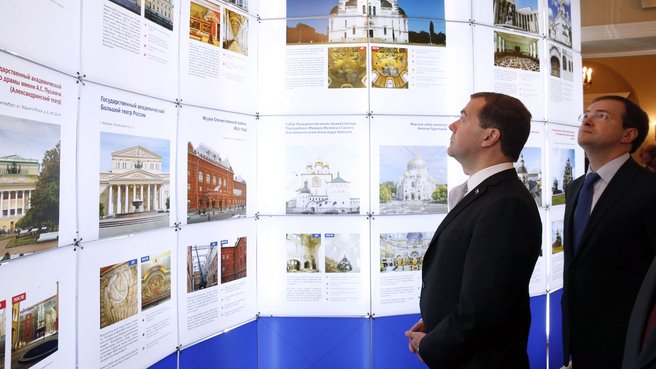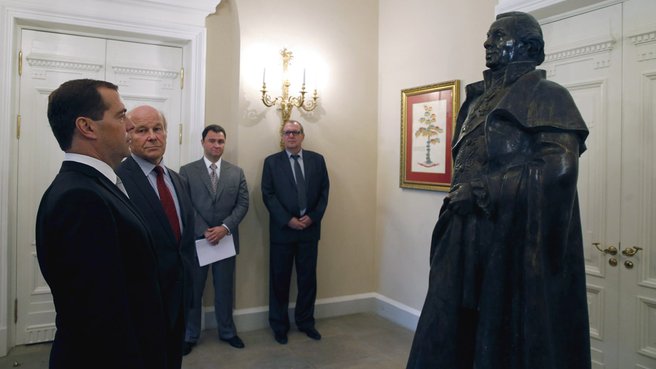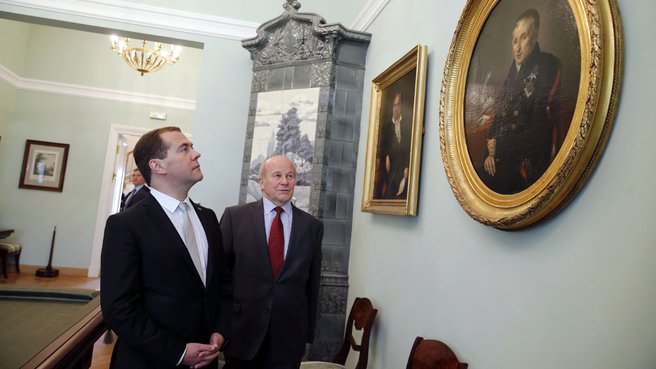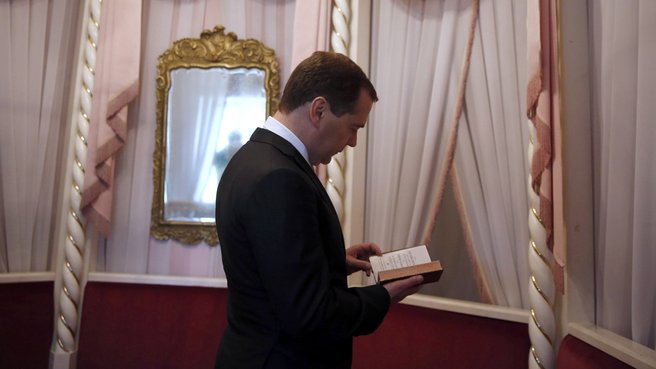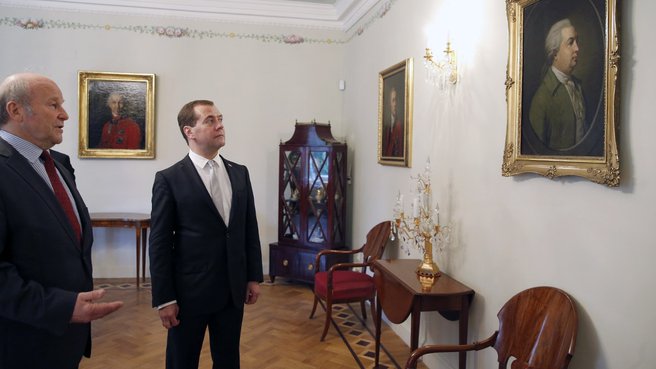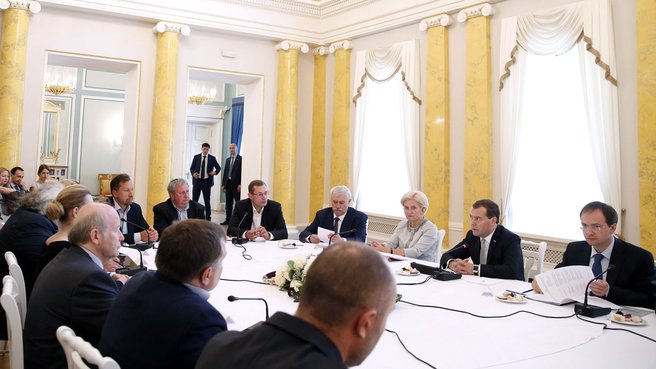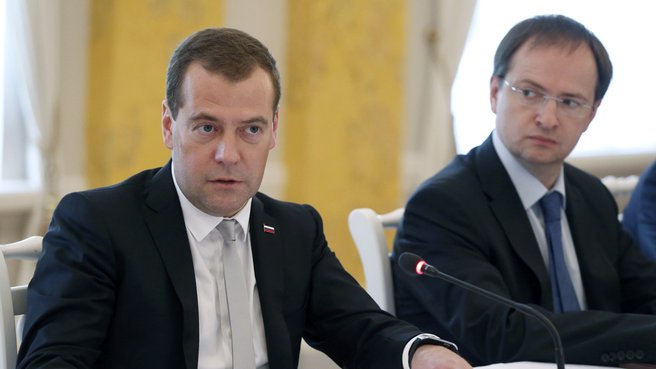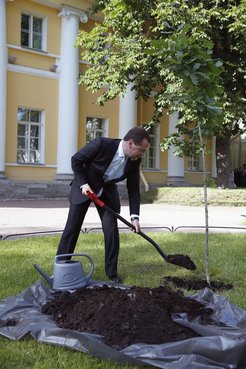Dmitry Medvedev’s opening remarks:
With Minister of Culture Vladimir Medinsky
It’s nice that events like this one do happen in our lives from time to time. The get-together that we’re having today is special also because of the venue -- Gavriila Derzhavin´s museum estate, one of the nation’s numerous heritage sites, with a long restoration record. Unlike so many of its counterparts, though, the renovation of this place has now been happily completed.
The project proved a challenging one -- predictably so in this sector, which you should know first-hand and better than anyone else, I suppose. Comprised of 18th- and 19th-century structures, the compound has been restored to its original glory. And this makes it a very appropriate venue for our gathering, I think.
The goal behind this encounter is not so much to thank you for your efforts (that said, let me express my sincere appreciation for what you do). Neither does it aim to dwell on how rich we are and how many good things we boast, nor on the slow pace at which things tend to be done in this country, unfortunately. Rather, we’ve come together to discuss how the Government and the restorer community could cooperate toward making our vast heritage’s restoration more efficient.
The nation boasts an excellent restoration school, one with a rich history and, unfortunately, with lots of sites requiring attention. Natural depreciation aside, our heritage has also been damaged by all sorts of man-made upheavals. Restoration expertise and efforts were in high demand throughout the 20th century, and there’s still a lot of work remaining to be done.
Dmitry Medvedev: "The goal behind this encounter is not so much to thank you for your efforts. Neither does it aim to dwell on how rich we are and how many good things we boast, nor on the slow pace at which things tend to be done in this country, unfortunately. Rather, we’ve come together to discuss how the Government and the restorer community could cooperate toward making our vast heritage’s restoration more efficient."
Russia has nearly 150,000 listed monuments as of now – this not counting the heritage in our two newly reclaimed territories. Some of those monuments feature on the UNESCO World Heritage List. We’re currently working on a whole number of high-profile sites. The Minister of Culture has just shown me around an exhibition devoted to some major projects currently being executed with funds from the Treasury or by charity contributions. Government funding is continuing, and presently being released under a federal targeted programme, Russian Culture.
But, clearly, nowhere in the world is heritage possible to renovate using public funds only; [In this country, too], a significant part of investment comes from private businesses, something they deserve praise for.
But when I meet up with businesspeople to discuss the issue, they say that they’ve been willing to participate all along, but that the Government should try to meet them halfway by incentivising private involvement, not punishing it.
If you have any related proposals, please feel free to speak out. I’ll be only too glad to heed.
Frugality is an important thing [in restoration]. I’m not saying “thrift”, as this may imply a compromise on quality. But there’s nothing wrong with avoiding extravagancy when it comes to spending public funds. This can be achieved by holding more sensible competitions, cutting the cost of works when feasible, and so forth.
Dmitry Medvedev: "Russia has nearly 150,000 listed monuments as of now – this not counting the heritage in our two newly reclaimed territories. Some of those monuments feature on the UNESCO World Heritage List."
Another point that I’d like to make at the start of our conversation is that art restoration professionals are few and far between and that providing quality training in the field is a task of national importance. The professional community remains quite strong in Moscow and St Petersburg (you may dispute this, though), but the provinces suffer from a shortage, with the schooling traditions largely lost. This is why we should work to create conditions for professional training and upgrading, doing so with our current needs in mind.
I know that a proposal has been made to institute a new title in your field, the Honorary Restorer of Russia. Let this also be part of our agenda. It seems like a good idea to me. And, unlike most other initiatives, it doesn’t require any government funding, meaning that it’ll be much easier to translate into reality.
With this, let me end my opening remarks, ladies and gentlemen. Now I’d like to hear what you have to say. Please feel free to make proposals as to how we could improve our cooperation. This is what matters the most to me, and I hope that my fellow officials attending feel the same way.
